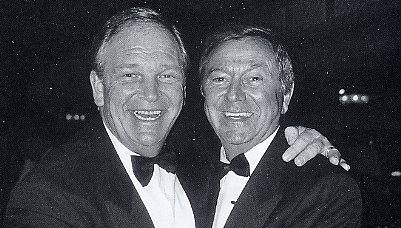|
Call Sign Brings in a World Taxi Expert! The July issue of Call Sign reviewed Phil Warren’s latest book ‘The History of the Knowledge of London’ (London Publishing £11.95), but we thought we’d go one step further this month and ask the closest we could find to an expert on world taxi history to offer a review. Norman Beattie lives in Canada but loves the history of the world cab trade. Norman probably knows more about the history of our business than anyone, so we sent him a copy… " This little book outlines the development of the Knowledge of London from its origin in 1884. In its earliest years, the Knowledge covered only the "principle streets and squares and public buildings" and the ad-hoc examinations involved prodding candidates along with hints and suggested street names. It was tightened up considerably over the years - the introduction of the motor cab having a major impact. The automobile's range meant that taxi trips now extended into the suburbs and the KoL was soon revised to cover outlying points and routes.From 1907 a driving test supplemented the Knowledge, but due to the lack of gearbox standardisation drivers had to pass a test for each make of cab that they intended to drive and in 1911 there were 21 taxi makes - each with different gearshift and pedal arrangements! As the Knowledge increased in complexity, cab companies complained that it was restricting |
THE HISTORY OF THE KNOWLEDGE OF LONDON |
|
 Norman Beatie the supply of drivers - a charge borne out by pass-fail statistics. Surprisingly, there was no adequate training program for Knowledge candidates until the Royal British Legion established its training school for ex-servicemen in 1927. This school ran successfully until 1995, pioneering the training techniques that are now standard. Statistical data from police reports alerted Phil Warren to an alarming correlation between the small number of new taxis put on the road, the large number of old taxis decommissioned, the small number of new drivers being licensed and the increasing time that it takes for candidates to pass the Knowledge. This has led him to suspect that the Knowledge is being used to restrict the supply of drivers to match the decreasing number of operating cabs. Whether or not his suspicion is justified, Mr. Warren is concerned about the steady decline in numbers of both London cabs and drivers and argues that reforms in both the Conditions of Fitness and the Knowledge are necessary to put more cabs and drivers on the road. Failure to do so, he says, will surrender more market share to the competing hire car industry. Phil Warren's book needed more |
editing to eliminate many small, but avoidable blemishes. For
example, punctuation and sentence structure are sometimes idiosyncratic and
tabular data is not always aligned properly. As the author admits, his focus
shifted during the course of his research. The book reflects this and seems
to drift away from its original topic. The book's major disappointment is that "…it is not a story which details how the Knowledge is carried out," presumably because Phil Warren's intended audience is made up of current and former London cab drivers. But to readers with no first-hand acquaintance with the Knowledge, these details are essential. Mr. Warren certainly could have supplied them. He is a veteran London cab driver as well as being the son and grandson of London cabbies and his own son represents the fourth generation of the dynasty. This is a rare wealth of personal experience to make a Knowledge book out of, or indeed a book about any aspect of the cab trade. Nevertheless, although the present book is by no means the last word on the Knowledge, it constitutes another of Philip Warren's worthwhile contributions to cab history. He knows his way around the Public Records Office, has an eye for interesting facts and he can bring to bear years of industry experience in his analysis of historic documents. Added to this, he has an engaging knack for telling a story. Hopefully we will be treated to even more Phil Warren cab books in the future…" Norman Beattie |
|
